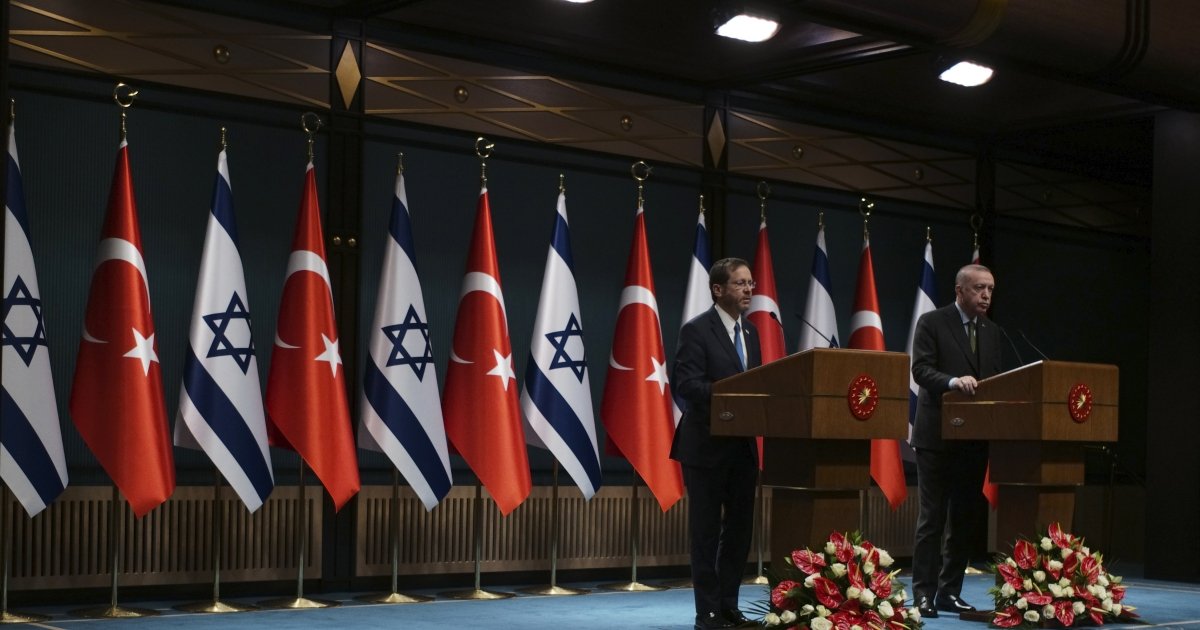Greek PM: Turkey avoids condemning Hamas as terrorist organisation
Turkey’s stance of not condemning Hamas as a terrorist organisation is “problematic” and unbalanced, Greek Prime Minister Kyriakos Mitsotakis said in an interview, adding that Athens is on alert following terrorist attacks across the bloc.
Meanwhile, a source in Brussels told Euractiv that EU authorities remain vigilant about European countries with large Muslim communities.
In an interview with ANT1 TV channel, Mitsotakis criticised Ankara for its stance on the escalation in the Middle East.
“Turkey’s position is certainly not balanced […] And by not openly condemning Hamas as a terrorist organisation is, in my view, very problematic”, the Greek leader said.
Since the beginning of the crisis in the Middle East, Turkish President Recep Tayyip Erdoğanhas been attacking Israel.
“I call on all humanity to take action to stop Israel’s unprecedented brutality in Gaza,” Erdoğan said earlier this week.
On Wednesday, he lashed out against the UN Security Council for not adopting a resolution to stop hostilities in the Middle East to send humanitarian aid to the Gaza Strip.
“The UN Security Council, which has become even more ineffective, has once again failed to take on its responsibilities,” Erdoğan said.
The resolution was put forward by Brazil but was vetoed by Washington, while Russia and the UK abstained.
On the other hand, Mitsotakis said Greece had been balanced by recognising Israel’s right for self-defence but with “respect to the International Law and to react within the framework of the rules that may govern an armed conflict”.
“Greece has never distanced itself from the logic of the two-state solution for the definitive resolution of the Palestinian issue”, the Greek centre-right leader noted.
Mitsotakis also expressed concern about the prospect of an armed ground invasion of Gaza.
“I am afraid that those who may have instigated or were behind this terrorist attack inside Israel are seeking exactly that”, he said.
Islamic terrorist attacks
Referring to the terrorist attack incidents in other EU countries such as France and Belgium, Mitsotakis said, “unfortunately,” this was not the first time Europe faced the implications of extreme Islamic terrorism.
“It is certain that when passions flare, such extreme behaviours may somehow come to the fore again”, he said.
“We are in close cooperation with all the security services of the European countries. In Greece, we did not have, I would say, characteristics of Muslim populations who had become radicalised, as has happened in other European countries. This does not mean that we should not be absolutely vigilant”, Mitsotakis noted.
‘Lone wolves’ raise eyebrows in Brussels
In Brussels, an EU source told Euractiv that European security authorities are not particularly concerned about potential organised terrorist attacks but are extra careful regarding “lone wolves”.
“No EU intelligence service can have absolute control on them […] there could be some information about individual radicalisation, but the control is the minimum”, the source, who is familiar with the ongoing security talks, said.
The source explained that EU countries with relatively large Muslim populations are particularly concerned, which is also reflected at the political level.
“France is showing nervousness every time an EU politician expresses support for Israel […] too much nagging is coming from Paris”, the EU source noted, adding that French President Emmanuel Macron wants to avoid fueling the fire in an already “fragile” social situation with his country’s Muslim communities.
The source stressed that one must understand France’s position, but at the same time, Paris needs to realise that “terrorist attacks must be condemned without fear”.
(Sarantis Michalopoulos | Euractiv.com)






